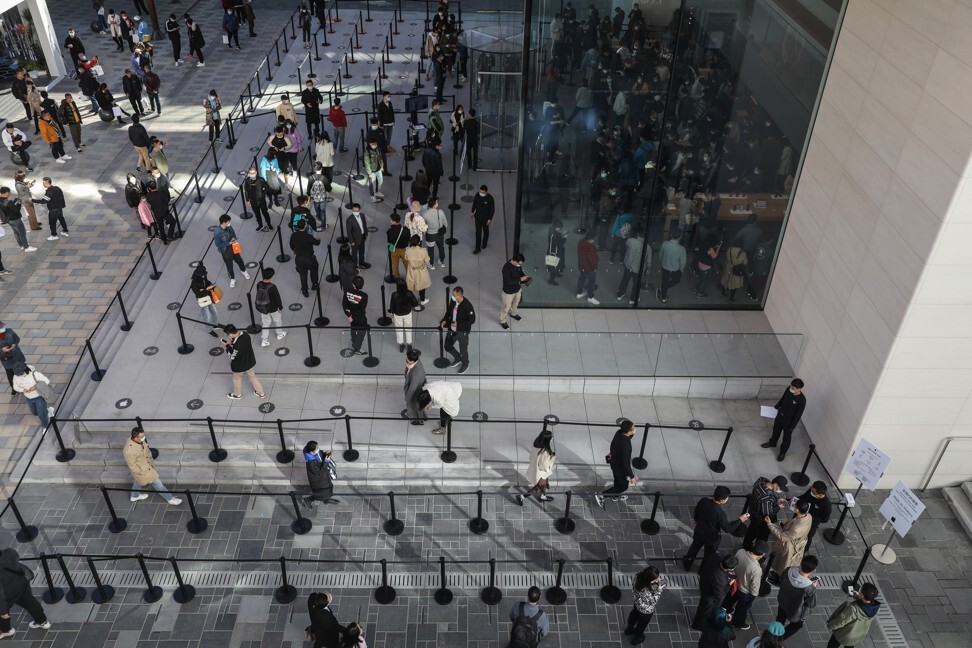
Apple’s mainland China political censorship extends to product engravings in Hong Kong and Taiwan, researchers say
- Researchers at The Citizen Lab in Canada found that part of Apple’s mainland China political censorship ‘bleeds into both Hong Kong and Taiwan’
- They indicated that political keywords are Apple’s main focus of censorship in its product engraving service across Greater China
In a report published on Wednesday, Citizen Lab researchers – based at the Munk School of Global Affairs & Public Policy in the University of Toronto – found that “part of Apple’s mainland China political censorship bleeds into both Hong Kong and Taiwan” in terms of filtering content for product engraving.
The company’s service allows customers to engrave a mix of emoji, text and numbers on the exterior of the company’s products, including the iPhone, iPad, AirPod, AirTag and Apple Pencil.
In mainland China, Apple censors political content including broad references to Chinese leadership and the country’s political system, names of dissidents and independent news organisations, and general terms relating to religion, democracy and human rights, according to the report.
“Much of this censorship exceeds Apple’s legal obligations in Hong Kong, and we are aware of no legal justification for the political censorship of content in Taiwan,” the report said.

Researchers’ analysis of Apple’s product engraving service in six markets – mainland China, Hong Kong, Taiwan, Japan, the United States and Canada – found that keyword filtering rules vary. While Apple blocks keywords referencing explicit sexual content, vulgarity, and illicit goods and services in all six markets, researchers indicated that political keywords are the main focus in the company’s Greater China markets.
They found 1,105 keyword filtering rules used in mainland China, 458 of which targeted political content. Of those 458 political keywords, Apple censors 174 in Hong Kong and 29 in Taiwan.
While “human rights” in simplified Chinese is only censored on the mainland, both the simplified and traditional Chinese versions of “Chairman Mao” and “Falun Gong” are blocked in all three Greater markets, the researchers found. The names of artist and activist Ai Weiwei and poet Liu Xia, wife of Nobel Peace Prize awardee Liu Xiaobo, are censored in mainland China and Hong Kong, but not in Taiwan.
Apple did not immediately respond to a request for comment. Apple remains the world’s most valuable technology company, with US$2.4 trillion in market capitalisation as of Wednesday.

Replying to an inquiry from The Citizen Lab ahead of the publication of its research findings, Apple chief privacy officer Jane Horvath said the company handles engraving requests regionally because there is no single global list that contains one set of words or phrases.
“Instead, these decisions are made through a review process where our teams assess local laws as well as their assessment of cultural sensitivities,” Horvath said. “We revisit these decisions from time to time. While those teams rely on information from a range of sources, no third parties or government agencies have been involved in the process.”

